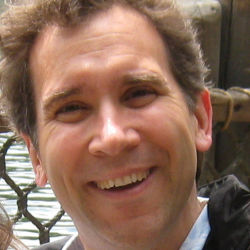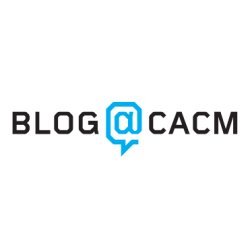BLOG@CACM
Big Data Analyzed By Big Compute, Big Compute Creates Big Data
A Summit on Computing Education in South Carolina
Building a Computationally-Literate Workforce
Building the HPC Community, Shaping Early Careers
For These Companies, It All Started With the Decision to Adopt
Computing Does Not Support Its Infrastructure
ACM Multimedia 2013 – Best Papers and the Revision Process
Considering Privacy Issues in the Context of Google Glass
Data Science Workflow: Overview and Challenges
ACM Multimedia 2013 – The First Day
ACM Multimedia 2013 – Challenges and Competitions
Results From the First-Year Course MOOCs: Not There Yet
Heidelberg Laureate Forum: Research At the Interface Between Disciplines
Helping Scientists, Engineers to Work Up to 100 Times Faster
Trip Report on Dagstuhl Seminar on Live Coding
Heidelberg Laureate Forum: Meet Your Role Models
Heidelberg Laureate Forum: Who Invented the Computer?
The First Heidelberg Laureate Forum 2013
Fixing the K-12 CS Teacher Certification Mess
Big Data Is ‘Buzzword Du Jour;’ CS Academics ‘Have the Best Job’
Shape the Future of Computing
ACM encourages its members to take a direct hand in shaping the future of the association. There are more ways than ever to get involved.
Get InvolvedCommunications of the ACM (CACM) is now a fully Open Access publication.
By opening CACM to the world, we hope to increase engagement among the broader computer science community and encourage non-members to discover the rich resources ACM has to offer.
Learn More















